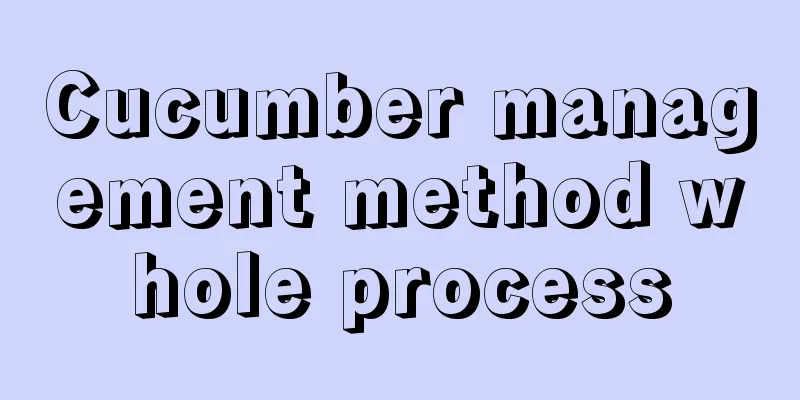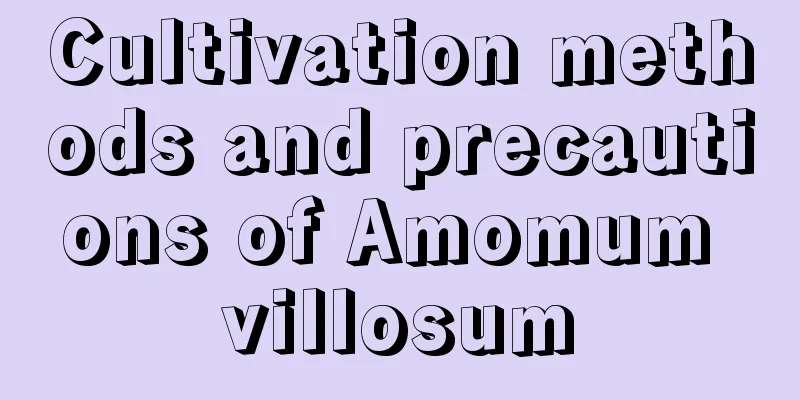Cucumber management method whole process

|
Cucumber , as a vegetable that likes warmth, has specific temperature requirements. Cucumbers grow and develop most efficiently in an environment between 15 and 30 degrees Celsius. However, once the ambient temperature drops to 10 to 12 degrees Celsius, the growth rate of cucumbers will slow down significantly and growth activity may almost stagnate. Let’s learn the whole process of cucumber management. 1. Insert the rack to guide the vines When the cucumber seedlings grow to more than 20 cm, a herringbone support of more than 2.5 meters needs to be set up, and the vines need to be secured with thin ropes to prevent lodging. Re-tie the vines every 30 cm of height increase. The best time to guide the vines is in the afternoon to avoid damaging them. 2. Plant Adjustment After the main vine touches the top of the frame, pinch and top it to promote the growth of sub-vines and increase the number of female flowers and fruit setting rate. After female flowers appear on the secondary vines, keep a few leaves and then pinch off the top to increase the fruit set rate. If the main purpose is to produce fruits on the secondary vines, pinch off the top of the main vine when it has 5 leaves to speed up the fruit production. 3. Fertilizer and water management Before cucumber vines are raised, apply 4-5 kg of urea per mu, dilute with water and apply in holes to promote strong seedlings. After the first inflorescence has stabilized, apply 8-10 kg of triple compound fertilizer per mu, once a week, for about 4 times in a row. Depending on the growth conditions, spray potassium dihydrogen phosphate or other fertilizers on the leaves. Pay attention to drainage during rainy seasons and irrigate in time during droughts. 4. Management during fruiting period After the fruits are formed, combine top dressing and watering. Water once every 3-4 days during the peak fruit-bearing period and fertilize at intervals. Reduce watering during the peak growth period, strengthen disease and pest control , ensure nutrient supply to the fruit, and extend the picking period. 5. Pest and disease control In the early stage of cucumber downy mildew, spray 500-600 times diluted carbendazim for prevention and control. Cucumber wilt can be prevented and controlled through reasonable crop rotation and selection of disease-resistant varieties. For bacterial angular leaf spot, choose disease-resistant varieties and use streptomycin to prevent and control in the early stages of the disease. In general, with the development of facility agriculture technology, cucumbers can be supplied to the market all year round. However, to achieve high yields, vegetable farmers need to carefully manage every link, from inserting racks and guiding vines to plant adjustment, to fertilizer and water management and disease and pest control. Each step is crucial. Through scientific management, a good harvest of cucumbers can be ensured.
|
<<: What fertilizer is best for growing peanuts and how to fertilize it
>>: How to grow bean sprouts and what are the precautions
Recommend
How to propagate the lotus lantern: cutting, sowing, and hydroponic propagation methods
How to reproduce The common propagation methods o...
Why can't you water succulents too much (what will happen if you water succulents too much)
Why can't you water succulents too much? (1) ...
How to keep seeds of forget-me-not and how to plant them
How to save seeds of forget-me-not Forget-me-not ...
How to sow petunia seeds
Petunia seed sowing time Petunia is suitable for ...
Why are Calla Lily plants weak?
Reasons for weakness Calla lily is a tuberous pla...
When is the best time to transplant figs?
When transplanting figs, be sure to plant them wi...
The difference between Hanlan and Jianlan
1. Differences between bulbs The pseudobulb of Cy...
The difference between purple-leaf dwarf cherry and purple-leaf plum
Different tree heights The purple-leaf dwarf cher...
The flower language and value of lucky grass
Flower Language There are many interpretations ab...
What to do about Monstera black spot disease
1. Symptoms At the beginning of the disease, ther...
When do Japanese cherry blossoms bloom?
When does it bloom? Japanese late cherry blossoms...
Cultivation methods and precautions of Rhododendron tubulosa
Cultivation method of Rhododendron tubulosa soil ...
How to propagate fuchsia by cuttings
1. Cutting time When taking cuttings, you can do ...
If you don’t check, all your succulents will die!
Daily management of succulents (from summer to au...
What to do if the leaves of cinnabar root turn yellow and fall off
1. Stop watering and loosen the soil Its leaves b...









